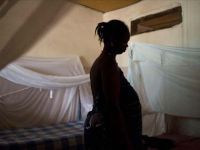Poverty has a woman's face
Extreme poverty, violence and discrimination. This is the reality for millions of women around the world as they work to provide for the family and simultaneously have to do the household chores, bring up the children, care for the sick and attend the elderly. We are in 2012. It is time for change and the responsibility lies with everybody.

On October 17, over one hundred thousand people gathered at Trocadéro, Paris, and declared that poverty is a violation of human rights. October 17 is therefore the International Day for the Eradication of Poverty.
Worldwide, women constitute 43% of the agricultural workforce - over 70% in some countries - and often run small businesses, dedicating up to all their income on providing for their families. However, despite all this, rural women in many cases face obstacles in gaining access to public services, protection, employment, markets, education and public institutions. Gender equality, in 2012, does not exist.
The role of women in societies in developed and developing countries is fundamental for the development of the communities in which they live and which they serve. Their contribution to the economies of these societies is vital for their development. In most developing countries it is the women who engage in the production of crops, caring for livestock, fetching water, providing food, providing water, providing fuel, working off the farm to gain more money or gather more food for the family, while simultaneously caring for the children, looking after the old, treating the sick...and in too many cases, being abused by a sexist husband or partner.
The combat against this shocking inequality and outrage against human rights is one of the flagship policies of UN Women, fighting for gender equality and against gender violence. Here is the declaration of UN Women on the International Day for the Eradication of Poverty:
"Poverty has a woman's face. Extreme poverty perpetuates a cycle of violence and discrimination against women and girls, and gender based inequality and violence keeps millions of women and girls in poverty and social exclusion. In many parts of the world, women and girls are denied equal opportunity in every aspect of life. Conversely, women are strong contributors to the economy, and can do much more if they are given equal resources. For instance, if women farmers have the same access as men to agricultural resources, we could potentially reduce the number of hungry people in the world by 100 to 150 million people!"
Read more about UN Women's policies and see what you can do:
http://www.unwomen.org/
Timothy Bancroft-Hinchey
Pravda.Ru
Subscribe to Pravda.Ru Telegram channel, Facebook, RSS!


